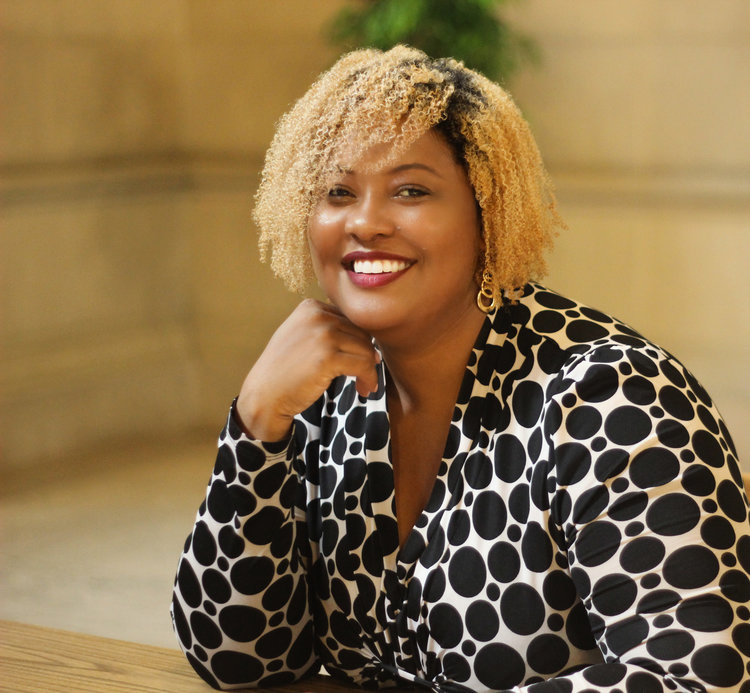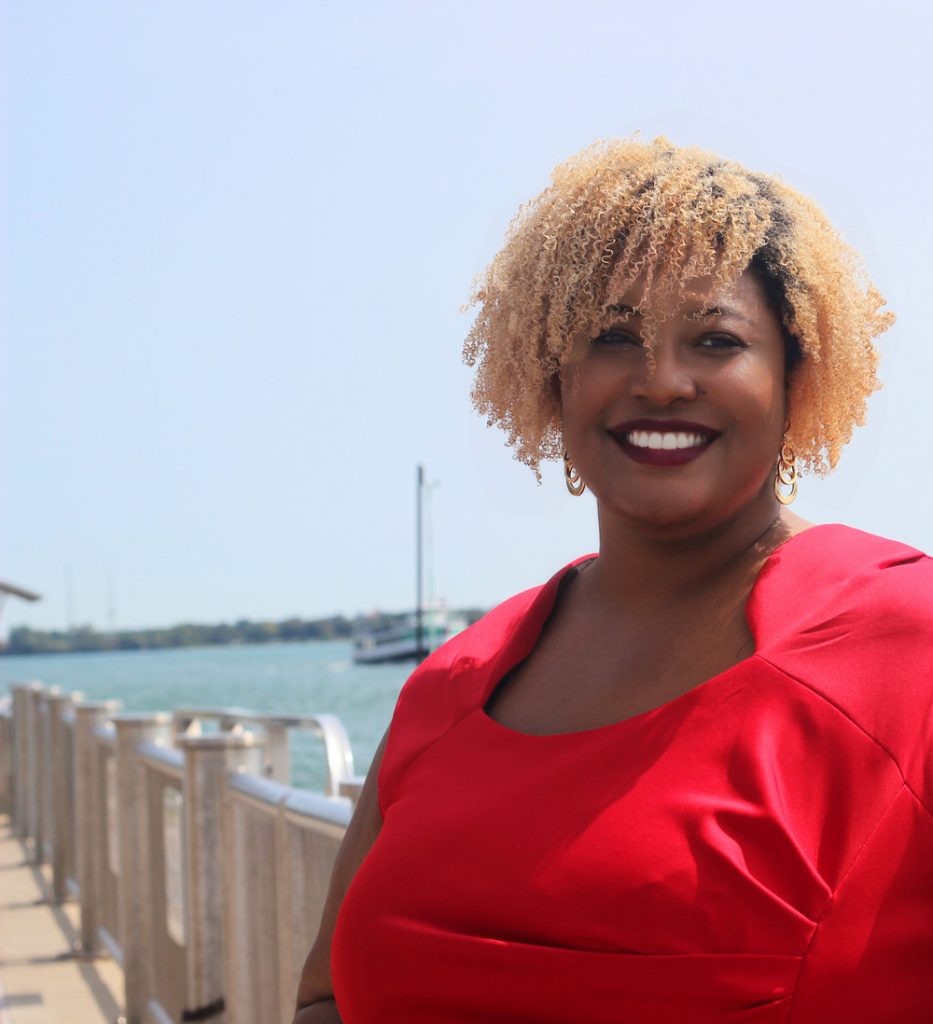From Peace Corps to diversity scholar, her path started at SIT
December 21st, 2018 | Alumni, Careers, SIT Graduate Institute

Like many alumni, Deniece Dortch found her way to SIT Graduate Institute via the Peace Corps. But instead of expanding her career abroad, as she had originally intended, her SIT experience convinced Deniece that she should sharpen, advance, and use her skills in the United States.
Today, Dr. Dortch is a diversity scholar who strives to understand how African American undergraduate and graduate students experience and respond to race and racism at predominantly white institutions and how those systems can change. It's a career that differs sharply from the one she once envisioned.
He handed me a brochure for SIT and I was like, “This is amazing, an international school with a social justice focus!
After completing a BA at Eastern Michigan University and serving in the Peace Corps in Morocco and Jamaica, Deniece wanted to become a Peace Corps trainer or country director. To do that, her country director at the time told her, she would need to go back to school. “He handed me a brochure for SIT and I was like, ‘This is amazing, an international school with a social justice focus!’”
She was drawn to SIT’s mission and the type of people who attended the institution. “I thought it would be a good fit for me. I didn’t apply to any other institutions at the time.” So, in 2004, Deniece came to SIT to earn an MA in intercultural service, leadership, and management. Once she arrived, though, fit became an issue. SIT felt “very much like a bubble. It was a very different type of experience. It felt very rural.”
Deniece was one of just seven African American students on campus that year. During one class, she remembers doing a privilege walk — an exercise that highlights the range of privileges that exist among a group of people — in which she and one other African American student ended up at the back of the classroom while others, because of their skin color, ancestry, social status, and other factors, moved forward.
That experience was an epiphany for Deniece. “One student came up to me teary-eyed and asked if she could give me a hug. But I wasn’t sure why. What were her tears for? What was her hug about? She said she was sorry, but I wasn’t sure what she was apologizing for — because I was in the back and she was in the front? Why was she sorry? Would she change places with me, given the opportunity?
“That moment sparked my interest to stay in the United States, and particularly in higher ed. Once those disparities were highlighted, I realized I had more work to do.”

At SIT, Deniece became committed to helping the institution and other students understand and process African American culture and history. She and several other students created The Black Diaspora, a group that staged performances and held a Soulful Sunday for Black History Month. They celebrated Martin Luther King, Jr., Day, not as a day off but as a day of social change. With support from Dr. Ken Williams, who is now dean of SIT Graduate Institute, and other faculty and staff, the students made it an event that included speeches and films.
Deniece chose to write her capstone paper on the experiences of U.S. black students who had attended SIT over the past five years. “My interest in wanting to stay in the U.S. really came from my experience at SIT,” she says. “It was a defining moment in terms of my career trajectory.” And that trajectory is impressive.
Deniece went on to complete a second master’s degree in higher and post-secondary education at Columbia University’s Teachers College and a PhD at the University of Wisconsin–Madison; she was a postdoctoral research fellow at the University of Utah, where she created the African American Doctoral Scholar’s Initiative, a comprehensive mentoring program for graduate students. Today, she is a diversity scholar on the faculty at George Washington University and has been interviewed on National Public Radio, PBS, and other media organizations.
Her research focuses on how psychological violence and fear are experienced, manifested, and reproduced in the academy, and her most recent projects explore intra-racial relationships and racial agency and how they affect students’ persistence in higher education.
Beyond the difficult lessons on race, class, and privilege that informed her career direction, Deniece says SIT’s experiential learning model taught her “how to be with people different from myself in a real, tangible way. It was where I first learned to be a facilitator, to develop workshops and training programs. It’s where I learned how to connect with a room of 150 people or a room of 10. That has helped me a lot over the course of my career, being able to engage with people in large and small audiences, in training workshops, classrooms, and one on one.”
It was where I first learned to be a facilitator, to develop workshops and training programs. It’s where I learned how to connect with a room of 150 people or a room of 10.
At Columbia, Deniece said, she learned to connect theory and data, which she says made her “a better activist,” and at the University of Wisconsin she pursued a deeper understanding of the experiences of graduate students. That grew into a dissertation on how African American doctoral students navigate the academy. “I learned … that students essentially were experiencing psychological warfare in higher education — being socialized in psychological violence, fear, tokenism, different forms of isolation — anything that might dehumanize them in any way.
“For example, when students come from a culture that functions optimally in collectivism, and you have them work individually, in isolation, you systematically isolate people,” she points out. “We have to look at how we can we socialize students differently.”
Graduate students have essentially two jobs to do, she continued: “Figure out who they are as a scholar, what kind of research are they going to conduct; and learn to ask questions that matter, to find that burning question, because that burning question will end up being their contribution to the field.
“But because African American students in particular are experiencing extreme forms of violence stemming from racism, it complicates the two things that they have to do” and can lead to higher levels of disengagement, she said. Students often emerge from PhD programs not fully equipped to do the work required of them because they’ve had to navigate experiences that damage their spirits, she notes. Those who endure often do so because they don’t see an alternative, thinking, “If I want to get a PhD or an MA, this is what I have to go through.
“But do you, is my question. Is it because there are no other models to follow that we keep perpetuating the violence?”
Systemic change happens at the policy level, and policy changes are hard to make, Deniece acknowledges. “A lot starts with institutional mission statements. Imagine if they all said they were striving to be anti-racist institutions. That changes the dynamic. That’s why people are attracted to SIT,” Deniece maintains. “Because if the mission is there, you have a lot to work with.”
“The people I met at SIT were awesome,” she continues. “The tools I learned there were valuable, and I use them to this day. So, is the question from an institutional perspective: Were we successful with her? Did we do our job to socialize her to activism?”
They’re open-ended questions, but if Deniece’s life's work is an indication, the answers seem clear.
